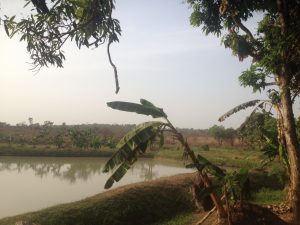Accessible and responsive frontline health systems
The Ebola Response Anthropology Platform was established in October 2014, led by Melissa Parker and Fred Martineau. By drawing upon existing anthropological expertise and undertaking targeted fieldwork, it was possible to provide rapid, practical, real- time advice to governments, bilateral agencies and international NGOs about how to engage with crucial socio-cultural and political dimensions of the epidemic and thereby build locally-appropriate interventions. It was a novel and successful approach to increasing the effectiveness of medical humanitarian responses. Moving forward, the Platform provides a useful model enabling responses to unfolding humanitarian crises to be shaped by anthropological insights in real time.
Building upon the work of the Ebola Response Anthropology Platform, Susannah Mayhew, Melissa Parker, Dina Balabanova and Johanna Hanefeld are undertaking a study on Building Resilient Health Systems in Post-Ebola Sierra Leone. This brings together anthropologists and health policy and systems analysts to develop a multidisciplinary framework to analyse the ways in which the international Ebola response affected Sierra Leone’s health system and its ability to withstand future shocks. It also examines how international, national and local emergency response mechanisms can be used to build a resilient health system in Sierra Leone. It explores the interface between official health systems and the reality of local actions on the ground, understanding who took decisions and why, and whether those connected to the international response reacted against it or were independent of it.
These researchers are also analysing the resilience and responsiveness of health systems in relation to climate change to describe what a “climate- resilient” health system would look like and what can be learned from related bodies of knowledge such as disaster preparedness. Taking up similar themes, work by Karl Blanchet through the School’s Health in Humanitarian Crises Centre studies how health systems respond to armed conflicts and humanitarian crises by developing resilience indices and studying how humanitarian interventions can disrupt health systems’ structure.
Our research includes a strong concentration on policy analysis approaches focused on frontline health systems, specifically in low and middle income countries. Work by Johanna Hanefeld, Lucy Gilson and Dina Balabanova has focused on understanding how human interaction and organisation affect health system performance and health outcomes. For example, Johanna Hanefeld has explored how management structures of clinical staff in district facilities in Zambia affect performance, and how mechanisms intended to increase community participation at facility and district level succeed or fail.
Similarly, work by the Integra Initiative, led by Susannah Mayhew, Anna Vassall and others has examined the interactions of mid-level managers and frontline providers with structural health systems components. The longitudinal study, evaluating different models of integrated reproductive health and HIV care provision and costs in Kenya and Swaziland, highlighted how systemic barriers to integrated care can be overcome by effective team-working and initiative-taking by management and frontline staff within the system. It also demonstrated potential trade-offs in costs which managers and policy decision makers need to consider.


